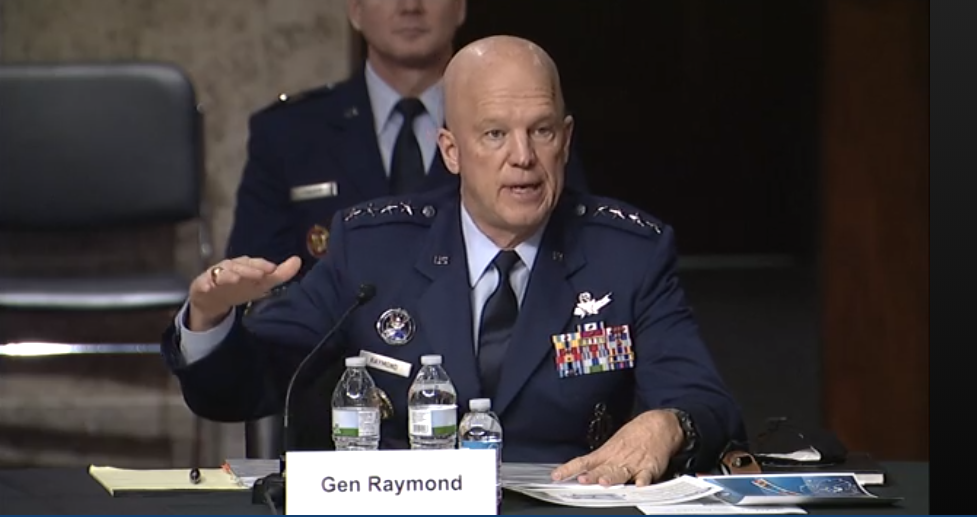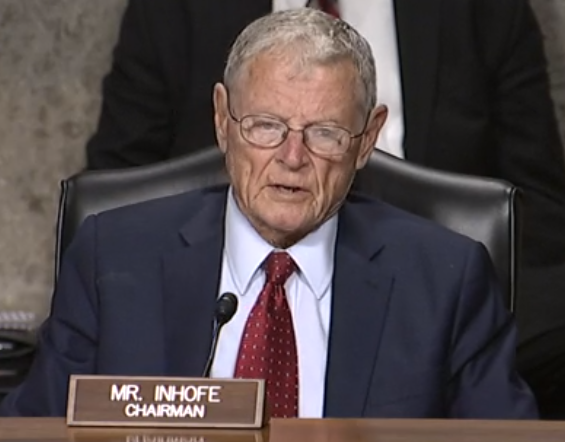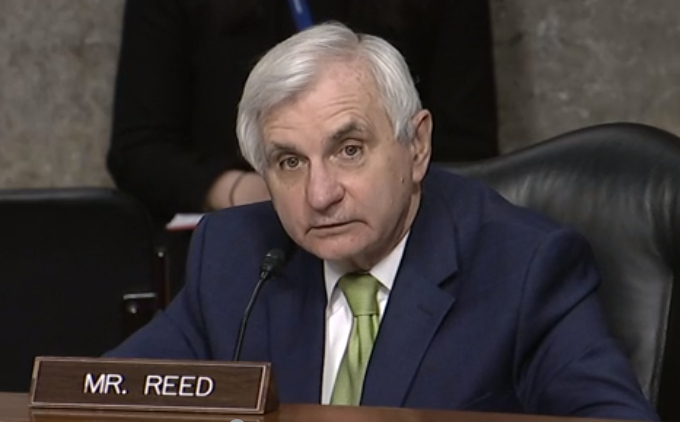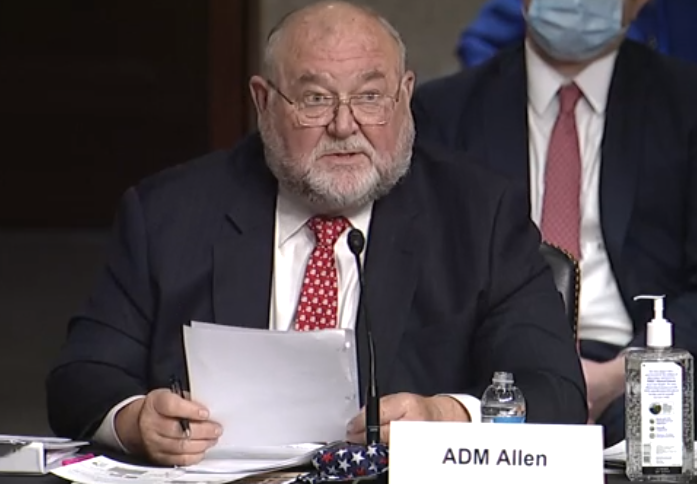FCC, Ligado Draw Major Fire in Armed Services Committee
The smarter way to stay on top of the multichannel video marketplace. Sign up below.
You are now subscribed
Your newsletter sign-up was successful
The FCC's decision to allow a new terrestrial broadband service alongside spectrum for critical GPS uses drew fire from both sides of the aisle, as well as top military brass and one famous pilot, in a hearing in the Senate Armed Services Committee Wednesday (May 6).

Even the iconic Sully Sullenberger weighed in on the decision, and he was not happy.
The Committee held a hearing Wednesday on the FCC's decision last month to allow Ligado networks to launch a terrestrial broadband service, a service that the Department of Defense and other agencies have argued could interfere with key GPS tech in adjacent spectrum.
The military brass in attendance had not changed their marching orders or their target, and the committee's chairman and ranking member were clearly in bipartisan agreement with DOD.
Related: FCC Approves Ligado Terrestrial Broadband Service
The hearing was essentially a chance for DOD to air its grievances. In fact, the witnesses were all from the defense side of the argument, though the committee made no pretense to it being other than hearing from the Department of Defense--an admiral, a general, an undersecretary and the DOD CIO--about their spectrum policy and concerns with the impact of the FCC decision and Ligado on national security.

Ligado took some issue with the fact that there were no witnesses scheduled from Ligado or from the FCC at the hearing.
The smarter way to stay on top of the multichannel video marketplace. Sign up below.
The hearing was conducted under social distancing guidelines as the Senate returned to work during the pandemic, which included masks and cleaning supplies at people's seats.
Committee Chairman James Inhofe (R-Okla.) approved a couple of thousand military appointments with the voice vote and the stroke of a pen before weighing in on the issue.
In a bad sign for Ligado, he was clearly impressed by the witnesses, saying it was one of the most impressive and said the issue "could be damaging to the country if something went wrong."
He said the issue boiled down to risk and said that risk should not come at the benefit of one company and its investors. He seemed convinced that Ligado's service would interfere with GPS, including military guidance systems. He said such interference with GPS would hurt the entire economy. At the end of the day, economic security is national security."
Inhofe said the issue was not winning the race to 5G, which he supported, but with that national security.
He said a few powerful people had rushed a hasty decision over the weekend (referring to the FCC) that the President (a big DOD fan) was not clued-in on, something he said he knew first hand was the case.

Ranking member Jack Reed (D-R.I.) opposed the FCC decision and said the hearing was essential, though he understood why some might want them to be looking at something COVID-19 related in their return to a pandemic-changed country.
Reed was no happier with Ligado and potential GPS interference, or with the FCC for granting the license, which he said was problematic for a number of reasons, including that it did not recognize the complexity of defense systems and the difficulty of replacing a GPS card. "I don't believe the FCC decision is in the public interest," he said.
Michael Griffin, under secretary of defense for research and engineering, said that GPS was designed under the expectation that ground-based transmitters would not be allowed because they drown out weak GPS signals. Now, he said, Ligado would be transmitting loud signals right next door.
He also said the replacement of GPS equipment due to Ligado would give China an opportunity to replace some of that equipment.
Allowing Ligado next door would mean GPS receivers would trying to listen for the rustle of leaves through the noise of 100 jets all at once. And he said that comparison was actually favorable to Ligado because he could not fit more than 100 jets on the chart he was displaying.
He said it will cost hundreds of billions of dollars and decades of time to replace GPS equipment to deal with that disparity.
Griffin also said it is a myth that Ligado is not crucial to the buildout of 5G
General John W. Raymond, chief of space operations, United States Space Force, and commander, U.S. space command, said GPS capability is irrelevant if receivers on the ground can't process them, and those signals are Less than a millionth of a billionth of a watt, he said, requiring a noise-pristine environment, the "quiet car" as it were.
He said the Ligado ground emitters will interfere with GPS, and the FCC-adopted buffer zone won't mitigate the interference risk. Bottom line, he said, the Ligado service puts space capabilities at risk.
He strongly opposed the use of the spectrum for terrestrial emitters, which he said would cede ground in the new space race to Russia and China.
President Trump is a big fan of the space force, which he created.

Dana Deasy, chief information officer at DOD, said that the FCC and Ligado had played bait and switch, that the risks of allowing the Ligado service far outweigh any benefits, and the FCC needs to reverse the decision.
Retired Admiral Thad W. Allen said he had talked to his friend, Capt. Chesley "Sully" Sullenberger--who safely landed his disabled plane on the Hudson river--about the impact of the Ligado service on the aviation industry. Sully called it "wrongheaded and dangerous," he said.
Update:Sullenberger retweeted this story following the hearing, making even clearer his continued unhappiness with the FCC's decision:
[embed]https://twitter.com/Captsully/status/1258505171874623489[/embed]
Contributing editor John Eggerton has been an editor and/or writer on media regulation, legislation and policy for over four decades, including covering the FCC, FTC, Congress, the major media trade associations, and the federal courts. In addition to Multichannel News and Broadcasting + Cable, his work has appeared in Radio World, TV Technology, TV Fax, This Week in Consumer Electronics, Variety and the Encyclopedia Britannica.

